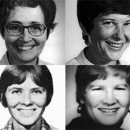In the New Year, there is far more that San Diego leaders — and residents — can be doing to address the homelessness crisis.
by John Brady
For more than a decade, homelessness advocates have decried the lack of public restrooms and those warnings were bolstered by two grand jury investigations. Even then, the city and the county of San Diego failed to take sufficient action — installing only two additional 24-hour Port-A-Loos by 2015.
Both had been removed by the time the Hepatitis A crisis began to take hold in 2017 as the virus spread, likely from trace amount of feces. Nearly 1,300 people who resided on our city streets were offered three bathrooms for all downtown.
By February 2017, individuals and organizations working on the streets were keenly aware that there was an emerging problem. Yet somehow an emergency was not declared by our leadership until September. A full seven months had passed, deaths had reached double digits and infections were in the hundreds.
By the end, the virus had spread throughout the county and continues to cause problems today.
This is unacceptable. If society is judged by how we treat our poorest, then our leaders failed us.
After decades of false promises, the region’s housing crisis, a major cause of homelessness, continues to grow. Consider a few facts: 11 percent of college students were homeless in the past year; 23,000 school children are registered as homeless in San Diego County; hundreds live in fear of having their vehicles (housing of last resort) taken by authorities; and thousands will have no place safe to sleep tonight.
Fortunately, there are many more handwashing stations and restroom facilities throughout the county today but services are still overwhelmed. For example, in the city of San Diego, there are as many as 20 showers open four hours a day. There is always a line. Meantime, an additional two banks of showers at the Neil Good Day Center have been out of service for years.
At the same time, there are only four free washers and dryers for everyone unsheltered in the downtown area. That’s eight loads of laundry per day for over 1,000 people while the water flow at Neil Good sinks are so severely restricted that they’re nearly unusable.
Father Joe’s Villages provides a daily free lunch, but most people must fend for themselves for breakfast and dinner. Residents and officials also actively discourage organizations from serving food to the needy.
These third-world conditions continue to exist while the county sits on more than $2.2 billion — yes, I said billion — in cash reserves, the majority of which can be used immediately for almost any emergency purpose.
Housing is the real emergency, and perhaps things will change as new leadership is taking power throughout the city and county. It is possible that we finally have the political will to change our approach to homelessness.
Here’s one idea: Establish a matching zero-interest fund for anyone willing to build low-income housing. By leveraging $500 million in reserves with private funding, we could have a $1 billion construction fund, enough to house thousands.
As a community, I hope we can immediately provide safe spaces for everyone on the streets, be they safe camps, safe parks or tiny houses. The people in greatest need should no longer be used as pawns. Currently our needy live in an endless game of whack-a-mole, continuously pushed from canyon to canyon or from your neighborhood to the next. This expensive approach hurts all of us.
As a community, I hope we can recognize that viewing homelessness as a crime is wrong and put outreach services ahead of expensive and aggressive enforcement practices. The San Diego City Council has already agreed to streamline low-income development applications and build 140 units of low-income housing in each district, and we ought to encourage other cities to do the same.
Thanks to skyrocketing rents, each of us should recognize that the person on the street could someday be us. Consider treating him or her accordingly, and remember this when increased housing density or low-income housing or services are proposed in your neighborhood.
It is the least we can do in the New Year.
John Brady is the director of advocacy for the Voices of Our City Choir, a group of sheltered, homeless and formerly homeless San Diegans who reach across social barriers by performing and advocating for public policy changes.
Originally appeared on Voiceofsandiego.org


 (909) 335-8100 ·
(909) 335-8100 ·  (909) 335-6777
(909) 335-6777 Email:
Email: